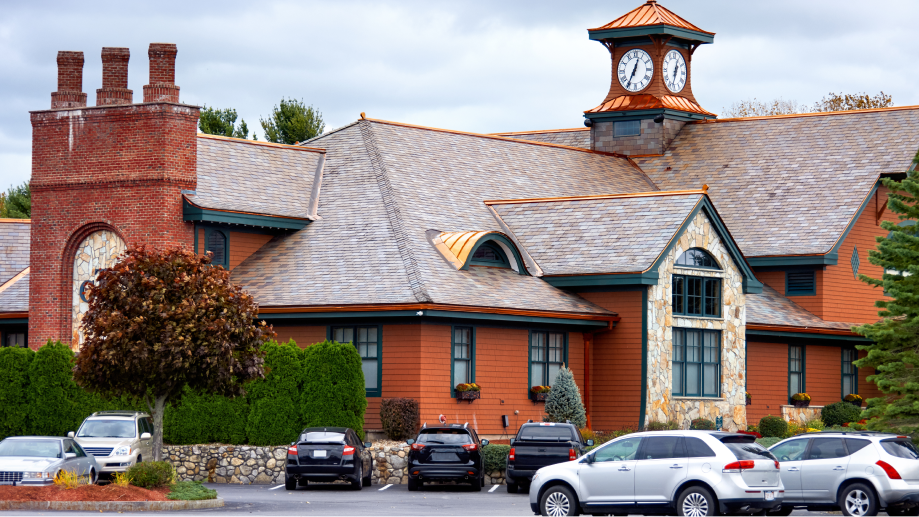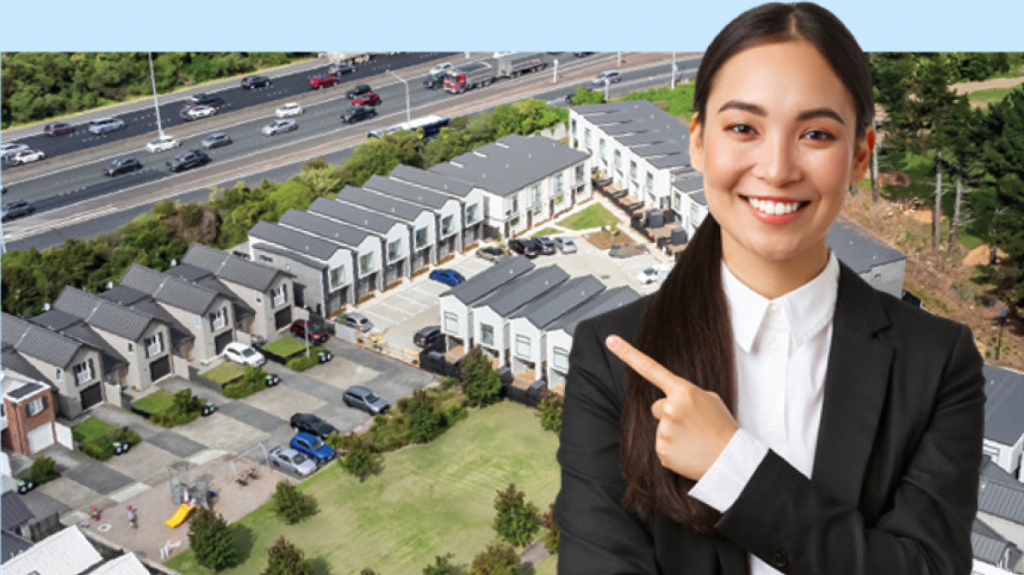A Complete Guide to Auckland Property Management 2026

A Complete Guide to Auckland Property Management 2026 New Zealand’s property market continues to evolve, shaped by shifting economic conditions, regional development initiatives, and changing population patterns. For investors like you, understanding which locations offer substantial property investment potential in New Zealand in 2026 could be the difference between steady returns and exceptional growth. As we approach a new investment cycle, knowing where to position your capital matters. This guide identifies the top five investment hotspots for 2026, analysing the factors that make each location compelling for both local and international property investors. Why location matters Location has always been the cornerstone of successful property investment. The correct location delivers not just immediate rental yield but also sustainable long-term capital growth. Several key factors will drive location value in the coming year: Infrastructure development remains a critical driver. Areas benefiting from road projects, public transport upgrades, and new community facilities tend to attract both residents and businesses, creating upward pressure on property values. Migration trends also play a significant role—regions experiencing net population inflows typically see stronger rental demand and tighter vacancy rates. Regional employment hubs are becoming increasingly crucial as remote work patterns stabilize and businesses decentralize. Cities and towns offering employment diversity, lifestyle amenities, and relative affordability are positioning themselves as attractive alternatives to traditional metros. Top 5 places to invest in 2026 1. Auckland – Targeted suburban growth Auckland remains New Zealand’s largest property market and economic engine. While the city’s overall market has matured, specific suburbs are poised for growth in 2026, particularly those benefiting from infrastructure upgrades such as the City Rail Link and ongoing transport improvements. Areas in South Auckland and the Northwest are seeing increased development activity and affordability-driven demand. Investors should focus on suburbs with improving connectivity, planned amenities, and demographic growth. Auckland’s rental market remains resilient due to its diverse employment base and ongoing migration to the region, making it a solid choice for investors seeking stability with selective growth opportunities. 2. Hamilton/Waikato – The spillover beneficiary Hamilton continues to benefit from its proximity to Auckland while offering significantly better affordability. The Waikato region is experiencing steady population growth as both families and businesses relocate for lifestyle and cost reasons. The city’s expanding university sector, healthcare services, and agricultural industry create consistent rental demand. Infrastructure investment in the region, including road upgrades and the continued development of the Ruakura inland port, positions Hamilton as one of the best places to invest in NZ for 2026. The combination of capital growth potential and strong rental yields makes it particularly attractive for investors building diversified portfolios. 3. Tauranga/Bay of Plenty – Lifestyle meets opportunity Tauranga’s appeal as a lifestyle destination continues to drive demand, supported by ongoing residential and commercial development. The Bay of Plenty region attracts retirees, families, and remote workers drawn to the coastal lifestyle and temperate climate. This demographic diversity creates stable rental markets across different property types. The Port of Tauranga’s role as New Zealand’s largest export hub ensures employment stability, while planned infrastructure projects and urban development keep the city on a growth trajectory. For investors targeting locations with both lifestyle appeal and economic fundamentals, Tauranga offers a compelling balance. 4. Christchurch/Canterbury – Affordable entry with steady demand Christchurch presents an attractive proposition for investors seeking affordability without sacrificing rental demand. The city’s rebuild phase has largely concluded, but development continues in key growth areas. Canterbury’s diverse economy—spanning agriculture, manufacturing, education, and technology—provides employment stability that underpins rental markets. Property prices remain comparatively affordable, offering investors better entry points with solid rental yields. As infrastructure development continues and the city’s population grows, Christchurch represents a value play for investors taking a medium to long-term view on property investment in New Zealand in 2026. 5. Wellington – The capital Wellington’s position as the nation’s capital provides inherent market stability. The concentration of government employment, combined with a thriving creative and technology sector, ensures consistent rental demand. While Wellington’s market has faced headwinds from public sector changes, the city’s structural employment base and limited development capacity support property values over time. Investors who understand Wellington’s unique market dynamics—higher yields in areas closer to the CBD, constrained supply due to geographical limitations—can find opportunities that deliver reliable returns. The city’s rental market remains tight, particularly for quality properties near employment hubs. Position yourself for 2026 The best places to invest in NZ in 2026 will ultimately depend on your investment strategy, risk tolerance, and return expectations. Each of these five locations offers distinct advantages, whether you’re seeking capital growth, rental yield, or a balanced combination of both. Successful property investment requires more than identifying hot spots—it demands local market knowledge, timing, and professional guidance to navigate regulatory requirements and market conditions effectively. Thinking about property investment in New Zealand in 2026? Speak with Oaks Property Management today and let our experts guide you to the right opportunities. Our team provides location-specific insights and professional property management services to help you maximize your investment potential. 📞 Call us on 0800 888 223 or 📧 email enquiries@oaksproperty.co.nz — we’re here to help. News Latest News Feeds All Posts A Complete Guide to Auckland Property Management 2026. December 1, 2025Read More DIY vs. Professional property management in Auckland: Is it worth the cost? November 26, 2025Read More Owner’s checklist for top-class property management in Auckland November 18, 2025Read More
DIY vs. Professional property management in Auckland: Is it worth the cost?

DIY vs. Professional property management in Auckland: Is it worth the cost? You’ve secured your first rental investment in Auckland’s property market. Now comes the crucial question: should you manage the property yourself to save money, or hire a professional property manager? This decision affects not just your immediate cash flow, but your long-term success in property investment. The choice between self-management and professional property management isn’t just about upfront costs—it’s about weighing immediate savings against long-term value, peace of mind, and investment protection. The DIY route: Pros and Cons The appeal of self-management Cost savings: The most obvious advantage is avoiding management fees. Professional property management typically costs more, and it may seem like you could save significant money upfront if you decide on the DIY path. Complete control: Managing your own property means you make all decisions—from tenant selection to maintenance choices. You have direct communication with tenants and can respond exactly as you see fit. Direct relationships: You may prefer building personal relationships with your tenants, believing it leads to better property care and longer tenancies. The hidden costs of DIY management Time investment: Property management quickly becomes a part-time job. Between advertising vacant properties, conducting viewings, screening tenants, coordinating maintenance, and handling emergency calls, the time commitment is substantial. Legal and compliance risks: Auckland’s rental market operates under strict regulations that change frequently. DIY owners face significant risks if they’re not current with tenancy law. Market knowledge gaps: Without professional market insights, DIY owners may underprice their rental or struggle with extended vacancies. Even minor pricing errors can cost thousands annually in lost rental income. Emotional stress: Dealing with difficult tenants, late payments, or property damage can be emotionally draining and impact your personal life and business activities. The professional approach: Pros and Cons The value of professional management Market expertise: Professional property managers understand Auckland’s rental market intimately. They can price your property accurately, reducing vacancy periods and maximizing rental returns. Comprehensive tenant screening: Professional managers have established processes for thorough tenant vetting, including credit checks, employment verification, and rental history reviews. This reduces the risk of problematic tenants and associated costs. Legal compliance: Professional property managers stay current with changing tenancy regulations, ensuring your property meets all legal requirements and protecting you from costly compliance failures. Established networks: Property managers have relationships with reliable, cost-effective contractors who provide quality work at competitive rates, often saving more than the management fee through better maintenance pricing. Time liberation: Professional management frees up your time to focus on other investments, your career, or personal life while ensuring your property receives expert attention. The investment in professional management Management fees: The primary drawback is the ongoing cost. However, the fee often pays for itself through reduced vacancies, better rental pricing, and fewer costly mistakes. Reduced direct control: Some owners feel disconnected from their investment when using professional management, though most find this distance beneficial for objective decision-making. Cost vs. Value: The real calculation Many Auckland landlords initially focus solely on management fees without considering the broader financial picture. The real question isn’t whether professional management costs money—it’s whether it provides value that exceeds its cost. Consider these hidden costs of DIY management: Extended vacancies: Poor marketing or pricing can mean weeks or months of lost rental income. Compliance failures: Healthy Homes certificate costs alone range around $287 plus GST in Auckland, and non-compliance penalties can reach $7,200 per breach. Tenant turnover: Poor tenant screening often leads to shorter tenancies and higher turnover costs. Maintenance inefficiencies: Without contractor relationships, DIY landlords often pay premium rates for urgent repairs. Professional property management typically pays for itself through more efficient operations, reduced risks, and optimized rental returns. What this means for property investors in Auckland First-time landlords: While DIY management might seem manageable initially, most find the learning curve steep and compliance requirements overwhelming. Professional management provides valuable education while protecting your investment property in Auckland. Busy professionals: If property investment isn’t your primary focus, professional management allows you to benefit from rental income without sacrificing time from your primary career or personal commitments. Portfolio builders: As your property portfolio grows, professional management becomes essential. Managing multiple properties DIY-style quickly becomes unsustainable and limits your ability to scale effectively. Remote investors: Interstate or overseas investors find professional local management essential for protecting their investment and ensuring compliance. The Oaks Property Management perspective At Oaks Property Management, we’ve guided many Auckland owners through the transition from DIY to professional management. The consistent feedback? Reduced stress, fewer vacancies, better tenant quality, and more substantial long-term returns. Our approach focuses on helping maximize your rental income while protecting your property asset through proactive management and strict compliance protocols. We understand that every property investor’s situation is unique. Whether you’re a first-time owner or an experienced investor looking to optimize returns, we tailor our services to match your investment strategy and goals. Making the right choice for your investment The decision between DIY and professional property management depends on your personal circumstances, investment goals, and risk tolerance. However, for most Auckland property investors, professional management delivers better long-term results despite the upfront cost. Professional property management transforms what can be a time-consuming, stressful responsibility into a passive investment that works harder for you. In Auckland’s competitive and heavily regulated rental market, the expertise and peace of mind that professional management provides often proves invaluable. The question isn’t whether you can afford professional property management—it’s whether you can afford not to have it. The cost is an investment in your property’s performance, your peace of mind, and your success in property investment in Auckland. Are you thinking whether to self-manage or hire a property manager? Contact Oaks Property Management today and find out how we can make your investment property in Auckland work harder for you. Ready for stress-free property management? 📞 Call 0800 888 223 or 📧 email enquiries@oaksproperty.co.nz today. News Latest News Feeds All Posts DIY vs. Professional property management in Auckland: Is
Owner’s checklist for top-class property management in Auckland

Owner’s checklist for top-class property management in Auckland Choosing a property manager shouldn’t feel like a leap of faith. Yet many Auckland owners struggle with uncertainty about what property management companies actually deliver—and whether the service justifies the cost. Whether you’re a first-time investor or managing multiple properties, understanding what constitutes exceptional property management is crucial for protecting your investment. This comprehensive checklist reveals the services that define the best property management in Auckland . Use it as your benchmark when evaluating potential partners, ensuring you choose a company that supports your >property investment goals in Auckland. Tenant screening and placement A property manager’s tenant screening process directly impacts your investment returns. Top-tier companies don’t just fill vacancies—they find quality tenants who protect your property and pay reliably. What to expect: Strategic advertising across premium rental platforms Comprehensive background checks covering credit history, employment verification, and previous landlord references Income verification, ensuring tenants earn at least three times the weekly rent Character assessment through face-to-face or video interviews Careful tenant matching that considers property type, location, and your specific requirements Quality tenant placement is particularly vital for property investment in Auckland , where vacancy periods can quickly erode annual returns. A rigorous screening process might take longer initially, but it prevents costly problems, such as rental arrears, property damage, or difficult evictions down the track. Rent collection and financial management Professional rent collection goes far beyond simply receiving payments. The best property managers implement systems that maximise cash flow while maintaining positive tenant relationships. Essential services include: Automated rent collection systems with multiple payment options Immediate follow-up on late payments with clear escalation procedures Detailed monthly statements showing income, expenses, and outstanding amounts Year-end financial summaries for tax preparation Transparent fee structures with no hidden charges Direct deposit of rental income within 48 hours of collection Financial transparency fosters trust, enabling you to make informed decisions about your investments. You should receive transparent reporting that tracks every dollar, from rental income to maintenance expenses, giving you complete visibility over your property’s performance. Property maintenance and inspections Regular maintenance and inspections not only protect your property’s value but also ensure tenant satisfaction. Professional property managers take a proactive approach that prevents minor issues from becoming expensive problems. Standard maintenance services: Quarterly routine inspections with detailed photographic reports Access to a network of licensed, insured contractors at competitive rates 24/7 emergency repair coordination for urgent issues Preventive maintenance scheduling for heating, plumbing, and electrical systems Detailed maintenance records that support property value and insurance claims Tenant communication about maintenance access and completion In Auckland’s competitive rental market, well-maintained properties command higher rents and attract quality tenants. Your property manager should view maintenance as an investment in your asset’s long-term value, rather than just an operating expense. Legal compliance and risk management New Zealand’s tenancy laws are complex and constantly evolving. Professional property managers stay current with regulations, protecting you from costly legal disputes and potential fines. Key compliance areas: Preparation of legally compliant tenancy agreements using current standard forms Proper bond lodgement with Tenancy Services within required timeframes Adherence to notice periods for inspections, rent increases, and tenancy terminations Management of tribunal processes if disputes arise Insurance coordination and claims assistance when needed Regular updates on legislative changes affecting your investment The cost of legal mistakes can be substantial—from fines for improper procedures to lost revenue during extended disputes. Quality property managers view compliance as fundamental protection for your investment. Communication and reporting Clear, regular communication distinguishes professional property managers from the rest. You should never wonder what’s happening with your investment. Communication standards: Monthly reports detailing property performance, maintenance activities, and market updates Immediate notification of significant issues or emergency repairs Digital portals providing 24/7 access to property information, statements, and documents Regular market updates help you make informed decisions about rent levels and property improvements Responsive communication channels with guaranteed response times Annual strategy discussions about your property’s performance and potential improvements Transparency in communication reflects transparency in service delivery. The best property management companies in Auckland recognize that informed owners make more informed decisions and achieve better investment outcomes. Making your choice: The OAKS advantage A top Auckland property manager provides far more than basic rent collection—they’re your partner in protecting and growing your investment. This checklist ensures you identify companies that deliver comprehensive, professional service worthy of your trust. The best property management combines systematic processes with personalised service, giving you confidence that every aspect of your investment receives expert attention. From tenant screening to financial reporting, maintenance coordination to legal compliance, each element should work seamlessly together. Ready to experience property management that covers everything on this checklist? Contact Oaks Property Management today and discover how our comprehensive approach can maximise your property investment in Auckland. Let us show you what exceptional property management looks like in practice. 📞 Dial 0800 888 223 or 📧 email enquiries@oaksproperty.co.nz News Latest News Feeds All Posts Top 10 benefits of hiring the right property management company in Auckland #2 November 18, 2025Read More Top 10 benefits of hiring the right property management company in Auckland November 13, 2025Read More Here’s a guide to choosing the right property manager in Auckland October 6, 2025Read More
Top 10 benefits of hiring the right property management company in Auckland

Top 10 benefits of hiring the right property management company in Auckland Managing a rental property in Auckland is time-consuming and complex. While some owners attempt self-management to save money, most discover that hidden challenges—tenant disputes, compliance risks, maintenance headaches, and inconsistent returns—quickly outweigh perceived savings. So, the smart ones recognise that outsourcing to a professional property management company in Auckland leads to better outcomes and higher returns. Here are the ten key benefits that make professional property management in Auckland a more brilliant long-term choice. 1. Accurate rental pricing Professional property managers conduct market analysis to set competitive rent that maximises returns while minimising vacancies. They understand Auckland’s neighbourhood dynamics and tenant expectations. Amateur owners often underprice properties, leaving thousands on the table, or overprice them, causing extended vacancies. Investment property management professionals in Auckland use data-driven strategies that optimise rental income. 2. Tenant screening expertise Quality tenants are the foundation of successful investment. Professional managers excel at finding them through comprehensive screening, including credit checks, employment verification, and reference calls. This thorough vetting reduces the risks of late payments and property damage. While DIY owners might accept the first reasonable applicant, professionals maintain strict standards protecting your investment. 3. Reduced vacancy periods Professional managers leverage multiple marketing channels and established networks to fill vacancies faster. They understand which platforms attract quality tenants and how to write compelling descriptions. Their systematic approach typically reduces vacancy periods by weeks, translating directly into increased annual rental income for your investment property management portfolio. 4. Legal and compliance support New Zealand’s tenancy laws are complex and constantly evolving. Professional managers stay current with Residential Tenancies Act requirements and Healthy Homes standards. They handle bond lodgements, notice periods, and dispute resolution according to legal requirements. This expertise protects you from costly compliance breaches and ensures lawful operation. 5. Maintenance and repairs management Established managers maintain networks of reliable, vetted contractors providing quality work at competitive prices. They coordinate routine maintenance and emergency repairs while conducting preventive upkeep, protecting your asset’s value. Their relationships often secure better pricing and faster response times than individual owners achieve. 6. Rent collection and financial tracking Professional managers implement systematic rent collection with automated reminders and detailed financial reporting. They maintain clear tax records, track expenses, and provide regular statements, simplifying your accounting. Established procedures typically result in fewer late payments and faster collection resolution. 7. Professional tenant relations Managers serve as professional intermediaries, handling complaints and disputes objectively. This buffer protects your time and reduces stress while maintaining positive tenant relationships. Their conflict resolution experience prevents minor issues from escalating into major problems requiring tribunal hearings. 8. Data and reporting transparency Quality investment property management services provide regular performance reporting. Monthly statements detail income, expenses, and key metrics. Regular inspection reports document property condition and identify potential issues early, enabling informed decision-making about your investment strategy. 9. Portfolio scalability As your portfolio grows, professional management becomes increasingly valuable. Managers handle multiple properties efficiently through established systems and economies of scale, coordinating maintenance and providing consolidated reporting that simplifies portfolio oversight. 10. Peace of mind Professional management provides genuine peace of mind. You can travel without emergency call worries, focus on your career without tenant interruptions, and sleep knowing experienced professionals protect your investment. This freedom allows you to enjoy property investment benefits without stress and time commitment. What does Oaks Property Management think At Oaks Property Management, we’ve witnessed how professional management transforms property investments from sources of stress into genuine wealth-building assets. Our systematic approach to investment property management in Auckland focuses on helping maximise returns, protecting assets, and minimising your day-to-day involvement. We’ve helped investors recover from extended vacancy periods caused by poor marketing decisions and watched clients’ portfolios grow because professional management freed them to focus on acquisition rather than maintenance calls. Our comprehensive approach combines market expertise, proven systems, and genuine care for your investment success. Ready to experience these benefits? Contact Oaks Property Management today and discover how we can enhance your property’s performance and value while giving you back your time and peace of mind. 📞 Call 0800 888 223 or 📧 email enquiries@oaksproperty.co.nz to get started. News Latest News Feeds All Posts Top 10 benefits of hiring the right property management company in Auckland November 13, 2025Read More Here’s a guide to choosing the right property manager in Auckland October 6, 2025Read More How to choose the right company for your investment in Auckland October 3, 2025Read More
Here’s a guide to choosing the right property manager in Auckland

Here’s a guide to choosing the right property manager in Auckland When you own rental property in New Zealand’s largest city, Auckland, selecting the right property management company can make all the difference for a successful investment. This decision isn’t just about finding someone to collect rent—it’s about partnering with professionals who will protect your investment property in Auckland and ensure long-term growth. Why the choice matters Property managers directly influence tenant satisfaction, property maintenance standards, and ultimately, your investment returns. The right partner can transform your investment property in Auckland from a source of stress into a profitable, hands-off asset. Quality property managers screen tenants to reduce turnover risk, conduct regular inspections, handle maintenance promptly, ensure compliance with tenancy laws, and provide detailed financial reporting. For anyone holding an investment property in Auckland, their expertise directly determines whether the asset performs to its potential. Market knowledge is particularly crucial in Auckland’s dynamic rental landscape. Understanding local rent rates, tenant preferences, and neighbourhood trends significantly impacts returns. A successful property manager relies on transparent communication, deep market knowledge, and proactive management to prevent minor issues from becoming costly problems. What should you watch out for Savvy investors approach property manager selection with healthy scepticism. Bargain-basement managers may cut corners on essential services, leading to higher vacancy rates and reduced returns. Be wary of hidden costs not clearly outlined in initial quotes. Some property management companies may advertise low base fees but add charges for tenant placement, inspections, and maintenance coordination. A transparent fee structure indicates a professional operation. Another red flag is overextended managers handling hundreds of properties with minimal staff. These operations lack personal attention, resulting in delayed responses and inadequate oversight. Digital systems have also become essential—companies still relying on paper-based processes may struggle to provide the real-time reporting investors expect. Outlook for owners and rental investors The benefits of choosing the right property management partner vary by investor profile but remain consistently valuable. For individual owners, particularly those new to property investment, the right manager provides peace of mind and professional guidance. They handle tenant disputes with legal knowledge, manage repairs efficiently, and ensure compliance with evolving tenancy legislation. Investors focused on portfolio growth find quality managers directly improve ROI through optimised rental rates, reduced vacancy periods through effective marketing and screening, proactive maintenance that preserves long-term value, and detailed reporting supporting strategic decisions. For overseas owners or busy professionals, having a trusted local team becomes essential. These investors rely on managers for compliance with New Zealand tenancy laws, local market insights, emergency response capabilities, and regular communication, keeping them connected to their investment. What to ask before you decide Before committing to any property management company in Auckland, ask comprehensive questions designed to reveal their capabilities. Essential questions: 1) “How many properties do you currently manage, and what’s your average vacancy period?” 2) “Walk me through your tenant screening process and dispute handling procedures.” 3) “How often will I receive financial reports, and can you show me samples?” 4) “What property management software do you use, and do you offer digital rent collection?” 5) “Can you provide a complete breakdown of all fees, including additional charges?” 6) “How do you determine appropriate rental rates and stay current with legislation changes?” Request sample inspection reports, monthly statements, and examples of tenant communication. A professional company should readily provide these materials and welcome a thorough evaluation. What does Oaks Property Management think At Oaks Property Management, we understand that the right property manager isn’t just an administrator—they’re your strategic partner in building long-term wealth through real estate investment. OAKS believes transparency forms the foundation of every client relationship. From detailed fee structures with no hidden costs to comprehensive monthly reporting, informed owners make better investment decisions. Our digital platform provides real-time access to financial statements, inspection reports, and maintenance updates. Proactive communication means we don’t just respond to problems—we prevent them. Our systematic approach includes regular inspections, preventive maintenance scheduling, and continuous tenant relationship management that reduces turnover and maintains property value. Whether you’re a first-time owner or experienced investor, our goal remains consistent: to make your investment property in Auckland work harder for you. For excellence Choosing the right property management company in Auckland can make all the difference between excellent and mediocre management, potentially resulting in thousands of dollars in annual returns and peace of mind knowing your asset is in capable hands. Your property in Auckland has the potential to provide stable income and long-term capital growth, but realising this potential requires the right professional partnership. Take time to evaluate candidates thoroughly and choose based on demonstrated competence rather than promises alone. Are you ready to experience the difference professional property management makes? Contact Oaks Property Management today to discuss how we can help your Auckland property reach its full potential. 📞 Call 0800 888 223 or 📧 email enquiries@oaksproperty.co.nz to get started. News Latest News Feeds All Posts Here’s a guide to choosing the right property manager in Auckland October 6, 2025Read More How to choose the right company for your investment in Auckland October 3, 2025Read More Live and thrive in residential societies June 10, 2025Read More
How to choose the right company for your investment in Auckland

How to choose the right company for your investment in Auckland As a property investor in Auckland , finding the best property management can be overwhelming. With dozens of companies promising exceptional service, how do you separate the experts from the rest? The decision you make here directly impacts your rental returns, tenant satisfaction, and long-term asset growth. While options are plentiful, not all providers deliver equal value, and making the wrong choice can be costly for your investment property in the Auckland portfolio. The reality is that property management encompasses more than just collecting rent and handling maintenance calls. It’s about protecting your investment, maximising returns, and ensuring compliance with New Zealand’s complex tenancy laws. Let’s explore how to identify the right property management partner for your Auckland investment. Save time and reduce stress Managing rental properties can quickly become a full-time job. Between tenant communications, maintenance coordination, and administrative tasks, many investors find themselves overwhelmed. Professional property management frees up your time while experts handle the day-to-day operations. Ensure compliance with tenancy laws New Zealand’s Residential Tenancies Act continues to evolve, with regular updates affecting everything from rent increases to property standards. Professional managers stay current with these changes, protecting you from costly compliance mistakes that could result in fines or tribunal disputes. Improve tenant quality and retention Quality tenants are the foundation of successful property ownership. Professional managers have established screening processes and tenant databases that help secure reliable, long-term renters. They also know how to maintain positive tenant relationships, reducing turnover and vacancy periods. Maximise investment returns Experienced property managers understand Auckland’s rental market dynamics. They can set competitive rent prices, minimise vacancy periods, and implement strategies that protect and enhance your property’s value over time. Key factors to look for in the best property management company in Auckland Experience and local market knowledge Auckland’s property market is unique, with distinct characteristics across different suburbs and property types. The best property management companies possess deep local knowledge—they understand which areas attract quality tenants, current rental rates, and neighbourhood-specific challenges. Look for managers who can demonstrate their Auckland expertise through case studies, market reports, and detailed knowledge of local amenities, transport links, and development plans that might affect your property’s value. Transparent fees and services Beware of companies advertising rock-bottom management fees without clearly outlining what’s included. The best property management providers offer transparent fee structures with detailed service descriptions. Ask about: – Management fees and what services they cover – Additional charges for maintenance coordination, tenant placement, or inspections – Fee structures for different property types or portfolio sizes – How they handle emergency repairs and associated costs Tenant screening and management systems Your property manager’s tenant screening process directly impacts your investment’s success. Quality providers should offer comprehensive screening, including: – Credit and employment verification – Previous tenancy references – Income assessment against rent requirements – Character references and background checks Additionally, look for modern tenant management systems that facilitate easy communication and rent collection through digital platforms. Maintenance and contractor networks Property maintenance can make or break your investment returns. The best property management companies have established networks of reliable, fairly-priced contractors who can handle everything from routine maintenance to emergency repairs quickly and cost-effectively. Ask potential managers about their maintenance processes, contractor vetting procedures, and how they handle urgent repairs outside business hours. Communication and reporting Regular, clear communication is essential for successful property management relationships. Top providers offer: – Monthly or quarterly detailed reports on property performance – Online portals where you can access real-time information – Prompt communication about significant issues or opportunities – Regular property inspections with comprehensive reports Common mistakes investors make when choosing a property manager Choosing based on the lowest fee alone While fees matter, the cheapest option often provides the least value. Low-fee managers may cut corners on tenant screening, maintenance oversight, or communication—issues that can cost thousands in lost rent, property damage, or legal problems. Not checking reviews or references Always research potential property managers thoroughly. Check online reviews, ask for recent client references, and verify their industry credentials and licensing status. Overlooking contract details Property management contracts contain crucial details about services, fees, and termination clauses. Don’t rush this step—understand exactly what you’re agreeing to and ensure the contract protects your interests. Assuming all property managers offer the same level of service Property management quality varies dramatically across providers. Some offer basic rent collection services, while others provide comprehensive investment advisory services, market analysis, and strategic guidance to help grow your portfolio. How to Compare Providers in Auckland Ask the right questions during consultations Prepare specific questions that reveal each company’s capabilities: – How many properties do you currently manage in Auckland? – What’s your average tenant retention rate? – How do you handle emergency maintenance situations? – Can you provide recent examples of rent increases you’ve achieved? – What systems do you use for tenant communication and reporting? Request sample reports and communication examples Quality property managers should readily provide examples of their reporting formats and communication styles. These samples reveal their professionalism, attention to detail, and the level of information you can expect to receive. Check how many properties each manager handles Managers juggling too many properties may struggle to provide personalised attention to your investment. Look for companies that maintain reasonable property-to-manager ratios, ensuring quality service delivery. Making the Right Choice With these pointers, it’s clear that choosing the right property management company is about protecting your investment property in Auckland while maximising returns. The best property management in Auckland combines local expertise, transparent communication, comprehensive services, and modern systems to deliver exceptional results for property investors. With the right partner, landlords gain peace of mind knowing their investment is professionally managed, compliant with regulations, and optimised for long-term success. Take time to evaluate providers carefully. Now is the time to speak with our experts at Oaks Property Management today and discover how we can maximise the value of your
Live and thrive in residential societies

Live and thrive in residential societies Residential Societies in New Zealand: The Complete Picture Residential societies in New Zealand are all the buzz now. They have emerged as vibrant communities full of life and connections. As urban areas expand and evolve, residential societies come with their set advantages and challenges. The Benefits of Residential Societies 1. Strong Community Bonds One of the standout benefits of residential societies is the sense of community they foster. In these neighbourhoods, you gain friendly faces and supportive neighbours, while in other urban spaces, anonymity permeates. Regular community events — festive barbecues, lively markets or seasonal celebrations — draw residents together, forging bonds that enhance the overall living experience. 2. Enhanced Security Safety is another compelling reason many choose residential societies. With features like gated entrances, surveillance systems and carefully monitored access, these communities provide an added layer of security that can be reassuring for families with young children or older residents. You experience lower crime rates and peace of mind in your daily life. In a chaotic world, the reassuring environment of a well-organized residential society can be invaluable. 3. Sustainable Living Meanwhile, many of these communities strongly emphasize sustainability and eco-friendly living. Thoughtfully designed homes often showcase energy-efficient technologies, communal gardens and shared green spaces. For environmentally conscious individuals and families, this focus on sustainable practices reduces their ecological footprint and offers potential savings on utility bills. Considerations Before Joining 1. Higher Initial Costs Nevertheless, residential societies come with certain drawbacks that deserve careful consideration. One prominent concern is the initial investment required to purchase a property within such communities. Typically, prices in residential societies can be higher than comparable homes in more traditional neighborhoods. 2. Community Regulations Additionally, the regulations and bylaws that govern residential societies could be confining. Each community has rules regarding home modifications, landscaping choices, and even pet ownership. While these regulations are for the greater good, they can frustrate you when you wish to personalize your space. Disputes may arise between residents and the governing bodies over what is permitted, sometimes leading to tension within the community. 3. Ongoing Fees Another drawback lies in the ongoing maintenance fees for living in these communities. To maintain shared spaces and community services, you must pay monthly or annual fees, which can add financial strain if they climb unexpectedly. Making the Right Choice In conclusion, residential societies in New Zealand present a beautiful mix of community spirit, safety and sustainability, making them an appealing choice for many seeking a fulfilling living experience. As the property landscape evolves, prospective residents must weigh these factors carefully, ensuring their choice aligns with their lifestyle, values and aspirations. Who better than OAKS property managers to guide you through your decision-making about whether a residential society is the right choice for you? 📞 Call 0800 888 223 or 📧 email enquiries@oaksproperty.co.nz for expert advice. News Latest News Feeds All Posts Top 10 benefits of hiring the right property management company in Auckland November 13, 2025Read More Here’s a guide to choosing the right property manager in Auckland October 6, 2025Read More How to choose the right company for your investment in Auckland October 3, 2025Read More
Let’s do up your commercial property

Let’s do up your commercial property Maximizing Commercial Property Value Through Strategic Upkeep Upkeep of your commercial property goes beyond strategic management, enhancing profitability and visibility. Property owners and managers must adopt innovative approaches prioritising efficiency, sustainability and aesthetic appeal in a constantly evolving market. How Can You Enhance Your Commercial Property? 1. Proactive Maintenance Regular inspections and proactive maintenance are the backbone of effective property management. Ensure your property managers address minor issues before they escalate into costly repairs while securing tenant satisfaction. 2. Curb Appeal Matters Because first impressions matter — common areas such as lobbies and hallways should be immaculate and inviting. You can invest in attractive landscaping, clear signage, and bright lighting to elevate your property’s visual appeal and attract more people. 3. Go Green Energy efficiency is another transformative factor that can greatly impact profitability while promoting sustainability. With New Zealand’s focus on environmentally responsible practices, properties with energy-efficient systems — like LED lighting and smart HVAC — can significantly lower operational costs. Moreover, properties with green certifications attract eco-conscious tenants, offering a competitive edge. So, conduct energy audits and upgrade outdated systems to showcase a commitment to sustainability and enhance property appeal. 4. Digital Presence Along with physical maintenance, a robust online presence is imperative. An updated website featuring high-quality images, engaging descriptions, and virtual tours can significantly attract interest. An effective search engine optimization strategy can also help you achieve higher rankings in online searches, thus reaching a broader pool of potential tenants. Social media platforms, such as Instagram and LinkedIn, provide excellent avenues for showcasing property features and engaging with prospective clients. 5. Community Engagement Community engagement is another effective strategy for boosting visibility. You can organise events such as workshops and exhibitions to allow properties to connect with the locals and create lasting impressions. Collaborations with local businesses can amplify these efforts, creating opportunities for word-of-mouth referrals that boost community interest. Additionally, building relationships with local influencers can enhance exposure and credibility. 6. Health & Safety Focus Health and safety considerations are essential, and ensuring compliance with health guidelines and providing sanitation stations fosters trust among potential tenants. You must ensure regular evaluations and transparent communication regarding health protocols to signal a commitment to tenant welfare, further enhancing property appeal. 7. Flexible Leasing Offering flexible leasing options can attract a wider variety of businesses. As hybrid working models become more prevalent, if you provide adaptable workspaces for short-term rentals, it can appeal to startups and freelancers seeking dynamic environments. This flexibility can boost occupancy rates significantly, maximizing revenue potential in today’s market. 8. Market Responsiveness Lastly, being attuned to market demands is essential for maintaining profitability. You can conduct thorough market research to understand tenant needs and inform strategic property adjustments. Regular feedback from tenants helps property managers enhance satisfaction and retention, ensuring the property remains attractive in a changing landscape. The Path to Long-Term Success A comprehensive approach mentioned here helps property owners gain greater profitability and respect. In a competitive environment, prioritizing visibility and tenant satisfaction will be key to achieving long-term success and growth. Transform Your Space and Boost Its Value Today 📞 Call 0800 888 223 or 📧 email enquiries@oaksproperty.co.nz for expert renovation advice. News Latest News Feeds All Posts Top 10 benefits of hiring the right property management company in Auckland November 13, 2025Read More Here’s a guide to choosing the right property manager in Auckland October 6, 2025Read More How to choose the right company for your investment in Auckland October 3, 2025Read More
Making body corporates function better

Making body corporates function better Body corporates manage shared property in New Zealand, especially for apartments, townhouses, and other multi-unit developments. They promote cooperation and upkeep of common areas. Yet several issues affect their effectiveness and frustrate homeowners and tenants. Understanding these issues can improve the living experience. Communication Woes Body corporates struggle with transparency and communication. Sometimes, body corporate management may exclude owners from decision-making processes, leading to trust issues. For example, meetings may not be publicized, reports may not be readily shared and a small group may make essential decisions that feel arbitrary to the rest of the community. A clear communication route, such as regular newsletters, open meetings and minutes of decision-making, can make an owner feel informed and valued. Transparency fosters a sense of community, and when homeowners feel included in the management process, it can lead to better support. Money Matters Financial management is another significant concern. Body corporates collect levies from members to fund maintenance, repairs and improvements to shared facilities. However, disputes over levy increases or financial mismanagement can lead to animosity within the community. Ensure your body corporate’s financial health while maintaining transparent budgeting processes. Regular financial reports should be provided in clear, uncomplicated terms so that all members understand how funds are utilized. Involving all owners in financial discussions and decisions makes them feel more invested in the community’s wellbeing and reduces grievances over rising costs. Usage Disputes Disagreements over common property usage and maintenance responsibilities are common in body corporates. Owners may have differing opinions on necessary repairs or improvements and how these should be prioritized. Establish a committee of volunteer owners who represent diverse interests and concerns related to the shared property. This committee would facilitate discussions on maintenance concerns and work towards finding a consensus before escalating issues to the larger body corporate. This approach helps in conflict resolution and fosters harmonious relationships within the community. Moreover, differing attitudes towards community living can create tension within a body corporate. Some residents prefer a more active involvement in communal events and decisions. In contrast, others may choose to maintain a distance and enjoy the privacy of their unit. Appointing a range of engagement opportunities can be beneficial in creating an inclusive environment that respects these varying preferences. Body corporates also face conflicts over property modifications that often leave owners discontented. For instance, one owner may want to make significant changes or renovations, which could affect shared spaces’ overall aesthetics or functionality. The best way forward is to have clear guidelines about alterations to common areas or how individual units may be modified. These policies should be developed with input from all owners, focusing on maintaining the overall integrity of the community while allowing some level of personalized expression within individual units. Safety and Security Safety and security concerns also frequently arise in body corporates. Whether dealing with vandalism, petty theft, or more significant safety concerns, these situations can substantially impact the community’s quality of life. Establishing a collaborative approach to safety — such as forming neighborhood watch programmes or organising community patrols — can deter crime while fostering a sense of unity among residents. Making It Work Ultimately, the effectiveness of body corporates in New Zealand hinges on successful collaboration, effective communication, and a commitment to inclusivity. By acknowledging and addressing the many issues that arise while striving for compromise, communities can foster a respectful, peaceful, and enjoyable environment for all residents. To find out more about body corporates in Auckland and Hamilton, contact OAKS Property Management today. 📞 Reach out to our Auckland team at 0800 888 223 or 📧 enquiries@oaksproperty.co.nz for tailored solutions. News Latest News Feeds All Posts Top 10 benefits of hiring the right property management company in Auckland November 13, 2025Read More Here’s a guide to choosing the right property manager in Auckland October 6, 2025Read More How to choose the right company for your investment in Auckland October 3, 2025Read More
Banks go for interest rate cuts

Banks go for interest rate cuts The Reserve Bank’s decision to slash the official cash rate (OCR) by 50 basis points has prompted major banks to cut their interest rates. While this move aims to relieve borrowers, some economists warn that the Reserve Bank may be cutting rates too aggressively. How Banks Responded to the Rate Cut ANZ ANZ has reduced its floating home loan rate to 6.89% for new loans and for existing borrowers. Fixed rates have also dropped, with reductions ranging from 10 basis points for a six-month fixed term to 45 basis points for a two-year term. The new special rates include: One-year special: 5.29% Two-year fixed: 4.99% Grant Knuckey, managing director for personal banking at ANZ, highlighted that most customers with fixed rates above 6% will benefit from lower rates when they refix later this year. Westpac Westpac has adjusted its rates as follows: One-year fixed: 5.49% (-5 basis points) Four-year fixed: 5.99% (-10 basis points) Five-year fixed: 5.99% (-20 basis points) However, the bank has discontinued its three-year special rate of 4.99%. Westpac’s General Manager of Product, Sarah Hearn, noted that the rate cuts would financially relieve homeowners. Kiwibank Kiwibank is passing the complete OCR reduction to its floating home loan rates, now 6.75%. The new rates are in effect. ASB ASB is also passing on the complete reduction, bringing its floating home loan rate to 6.89%. ASB has cut its variable rates by nearly 2% over the past six months. Additionally, some savings rates will also be reduced. BNZ BNZ has adjusted its floating rates as follows: Standard variable home loan rate: 6.94% TotalMoney, Mortgage One, and Rapid Repay rates: 7.04% Mixed Views From Economists Gareth Kiernan, Infometrics’ chief forecaster, cautioned that the Reserve Bank may be ignoring signs of economic recovery and inflation risks by cutting rates too aggressively. He predicted further downward pressure on fixed mortgage rates, with another 25 basis points reduction possible soon. On the other hand, Kiwibank’s Chief Economist, Jarrod Kerr, believes more cuts are necessary. He argues that with unemployment rising and inflation stabilizing, interest rates should drop further to stimulate economic activity. Kelvin Davidson, Chief Property Economist at CoreLogic, advises borrowers to manage expectations. Although some interest rate reductions are expected, they may not be as large as anticipated. Banks were already lowering rates ahead of this decision. With global uncertainties persisting, Davidson noted, there may soon be a shift back toward longer-term fixed rates. What Should Borrowers Do? The Finance and Mortgage Advisers Association of New Zealand urges borrowers to ensure they benefit from the rate cuts. They advise that if banks do not reduce repayments, customers should contact their lender or consider refinancing with the help of a mortgage adviser. Country Manager Leigh Hodgetts said that as competition among banks increases, more rate cuts can be expected in 2025. The time could be right for borrowers to lock in lower mortgage costs and ease financial strain amid the changing economic landscape. Speak to Our Experts Today 📞 0800 888 223 | 📧 enquiries@oaksproperty.co.nz News Latest News Feeds All Posts Top 10 benefits of hiring the right property management company in Auckland November 13, 2025Read More Here’s a guide to choosing the right property manager in Auckland October 6, 2025Read More How to choose the right company for your investment in Auckland October 3, 2025Read More
How the Reserve Bank’s OCR cut impacts the property market

How the Reserve Bank’s OCR cut impacts the property market RBNZ Cuts OCR to 3.75%: What It Means for NZ Property Market The Reserve Bank of New Zealand (RBNZ) has announced a 50 basis point cut to the Official Cash Rate (OCR), bringing it down to 3.75%, the lowest level since October 2022. It marks the third consecutive major reduction to stimulate economic activity. While this move could help borrowers, its impact on New Zealand’s real estate market remains to be seen. Oaks Property Management is closely watching these changes and their effects on property investment, homeownership, and rental markets. A cautious response With the OCR cut, several big retail banks, including ASB, BNZ, Westpac, Kiwibank, and Co-op Bank, have reduced their floating mortgage rates. However, most fixed-term mortgage rates remain unchanged, indicating that banks are cautious about committing to long-term lower rates. Meanwhile, the OCR reduction could mean lower mortgage repayments, making homeownership more accessible. Moreover, borrowing costs may also boost the demand for properties. Outlook for investors and rental market The slashing of OCR may be an opportune moment for property investors to expand their portfolios, particularly those leveraging mortgage financing. Reduced interest rates could improve rental yield calculations, making investment properties more attractive. However, investors should remain mindful of external factors, including potential economic volatility and evolving rental demand. Meanwhile, the impact of the OCR cut on the rental market is mixed. Owners with mortgages may experience some relief in mortgage payments, leading to more stability in rental pricing. Yet, tenants may not see immediate benefits, as rental prices are influenced by broader economic factors, including supply, demand, and local employment trends. Given the rising unemployment rate and cautious economic outlook, rental demand could fluctuate. For property managers like Oaks Property Management, the key focus will be maintaining occupancy rates and ensuring rental properties remain competitive in pricing and quality. What does the future hold? The RBNZ’s move aims to stimulate economic growth. However, uncertainty in the global economy could influence long-term market stability. While the central bank has hinted at further OCR reductions throughout 2025, it remains cautious about the speed and extent of these cuts. Should you buy, sell, or hold? Homebuyers: If you’ve been considering purchasing a home, now is an ideal time to explore mortgage options while rates remain low. Investors: This could be a strategic moment to acquire rental properties, provided you carefully assess market conditions and financing options. Current homeowners: You might see repayment reductions if you have a floating mortgage. However, if you’re on a fixed rate, consider refinancing opportunities to capitalize on future cuts. What does OAKS Property Management think? The Reserve Bank’s latest OCR cut presents opportunities and challenges across New Zealand’s property sector. Understanding the implications of these changes is crucial to making informed property decisions, whether you’re a homebuyer, investor, or tenant. At Oaks Property Management, we are committed to guiding you through these evolving market conditions, ensuring that homeowners, investors, and tenants maximize the benefits of a changing financial landscape. If you have questions about how these changes might affect your property strategy, contact our team today! 📞 Call 0800 888 223 or 📧 email enquiries@oaksproperty.co.nz for expert guidance. News Latest News Feeds All Posts Top 10 benefits of hiring the right property management company in Auckland November 13, 2025Read More Here’s a guide to choosing the right property manager in Auckland October 6, 2025Read More How to choose the right company for your investment in Auckland October 3, 2025Read More
Evaluate your property wisely

Evaluate your property wisely Do you know how much your property is worth? Getting your property valuation right is essential for buyers and sellers alike, especially in a dynamic real estate market like Auckland. It can help you make informed decisions about renovating or refinancing. Property valuation determines the present property value as professionals asses the property on specifications. Location, size, condition, interest rates, rentals, demand, amenities, recent sales of similar properties in the area and market trends are key factors. Accurate valuations help set fair selling prices, secure loans, assess tax liability and more. You will neither overpay for a property nor undersell that you own. Different types of valuation It’s crucial to know different methods of valuation and to take the responsibility of choosing the one that best suits your needs: Real estate valuation: Different tools are available online that can offer property estimates based on recent sales data and market trends. They are a good place to start, but they are not comprehensive. Government valuation or rateable value: Your property’s rateable value (RV) is available with your local council or website. RV is a guideline, primarily for property taxes, and might not reflect the present market value of your property. Registered valuation Hire a registered valuer for an accurate valuation. The person will thoroughly inspect the property and give you a comprehensive report on its value. This helps with significant investment decisions. Other methods include: Income method: Rental properties help calculate their value based on the income they generate. The valuation involves assessing the rental income and subtracting expenses to determine its net operating income. Cost method: Here, the value is based on the cost of rebuilding the property, including the land price and the cost of constructing a similar building. Every valuation method has pros and cons, so choose the more suitable method after extensive research. It’s worth noting that even artificial intelligence can now assist with property valuation, using large datasets to estimate property values. With so many factors in play, consider using one or a combination of these methods to assess your property’s value wisely. Need to assess your property’s worth accurately? 📞 Call our Auckland team on 0800 888 223 or 📧 email enquiries@oaksproperty.co.nz News Latest News Feeds All Posts Top 10 benefits of hiring the right property management company in Auckland November 13, 2025Read More Here’s a guide to choosing the right property manager in Auckland October 6, 2025Read More How to choose the right company for your investment in Auckland October 3, 2025Read More
